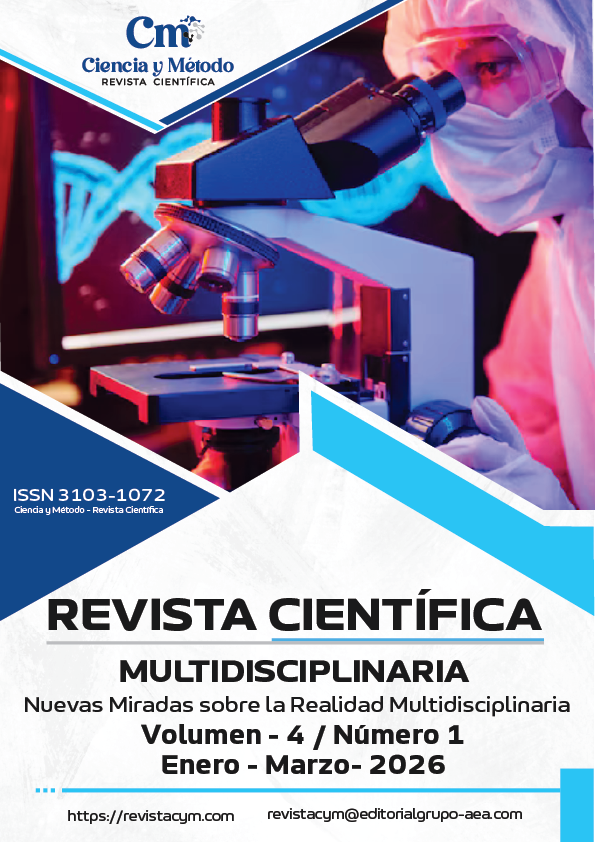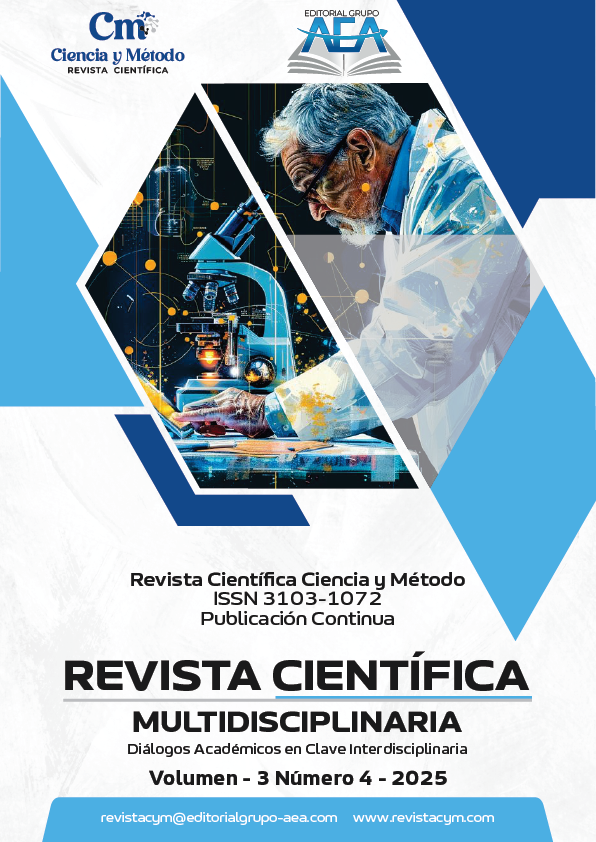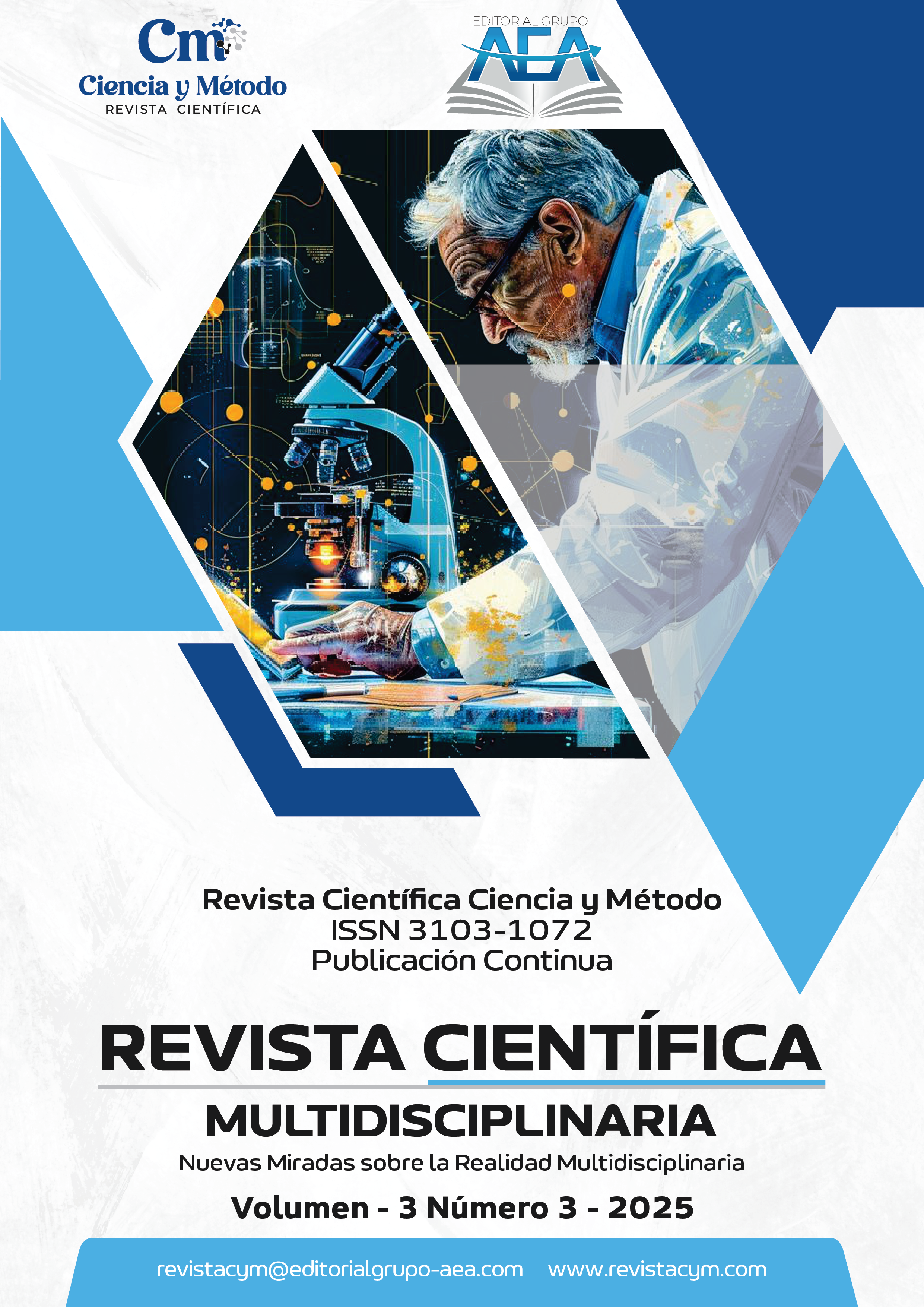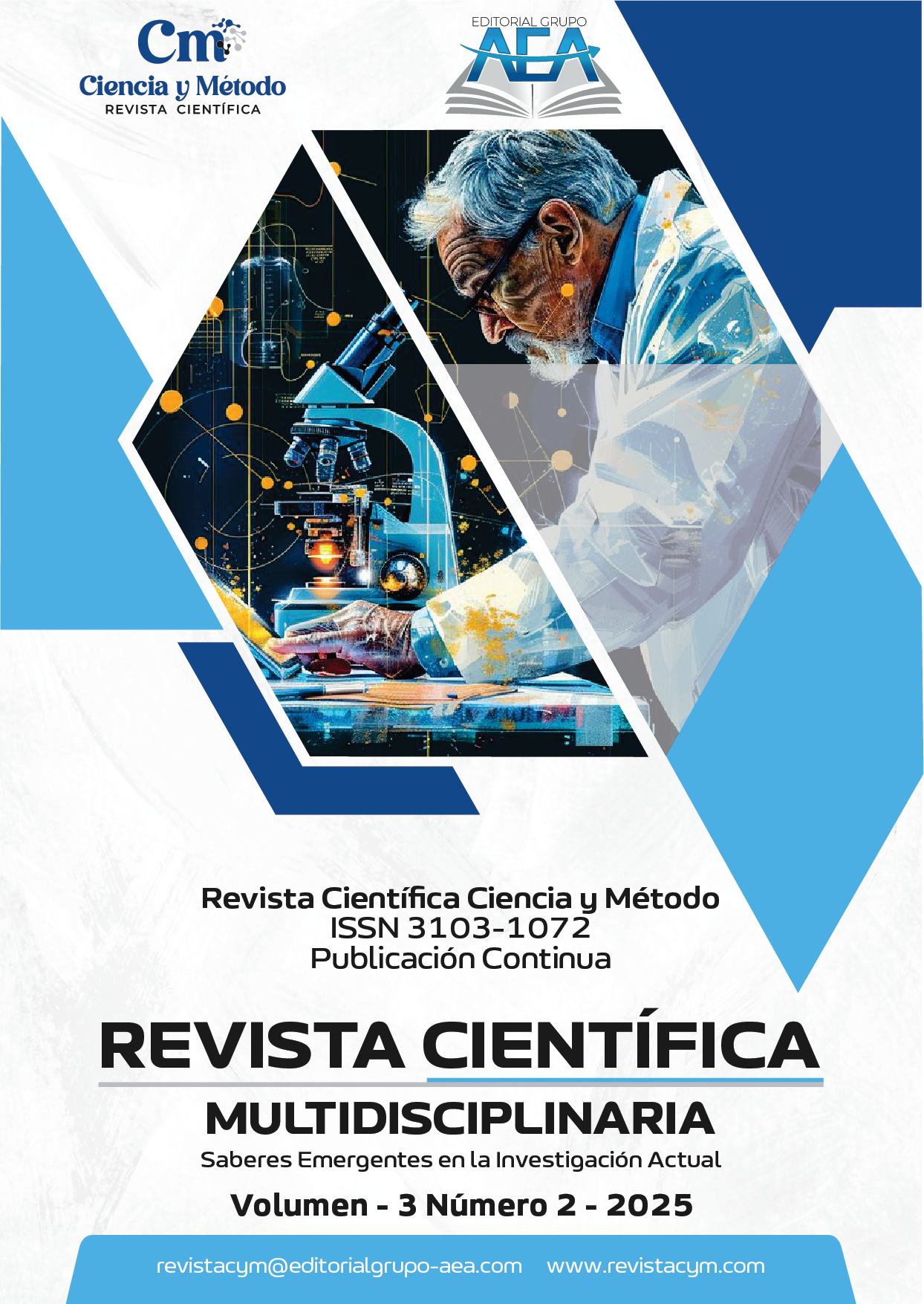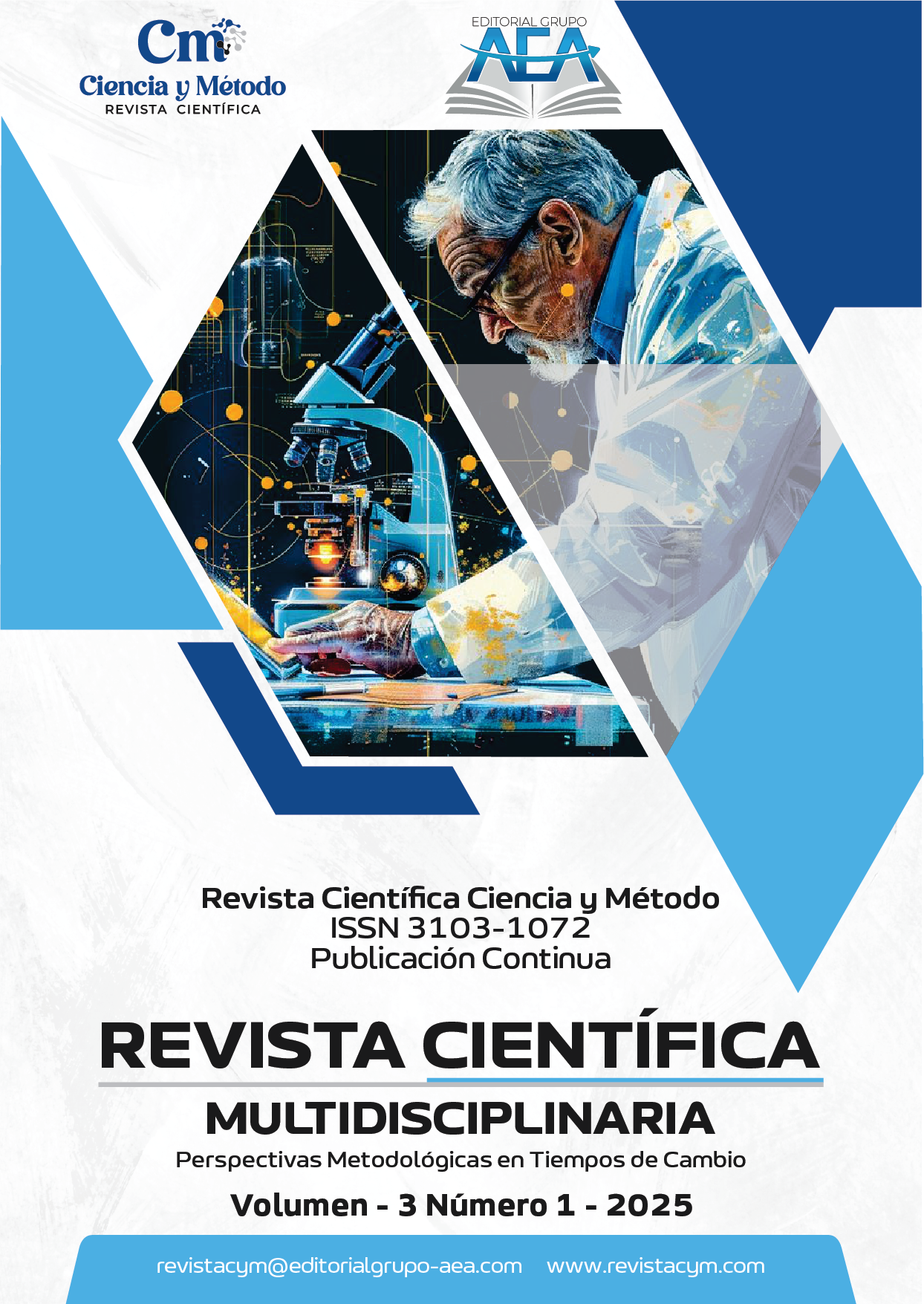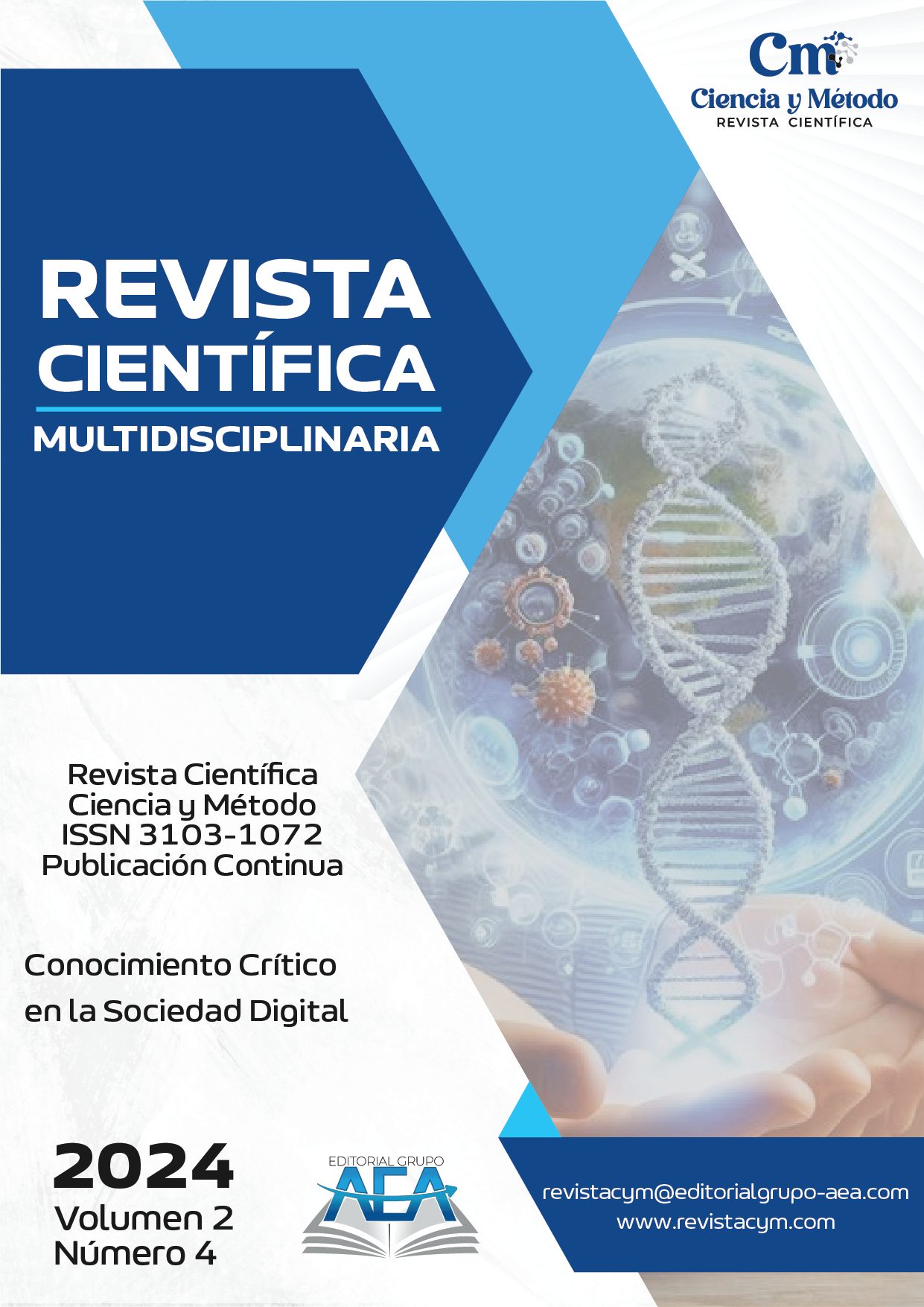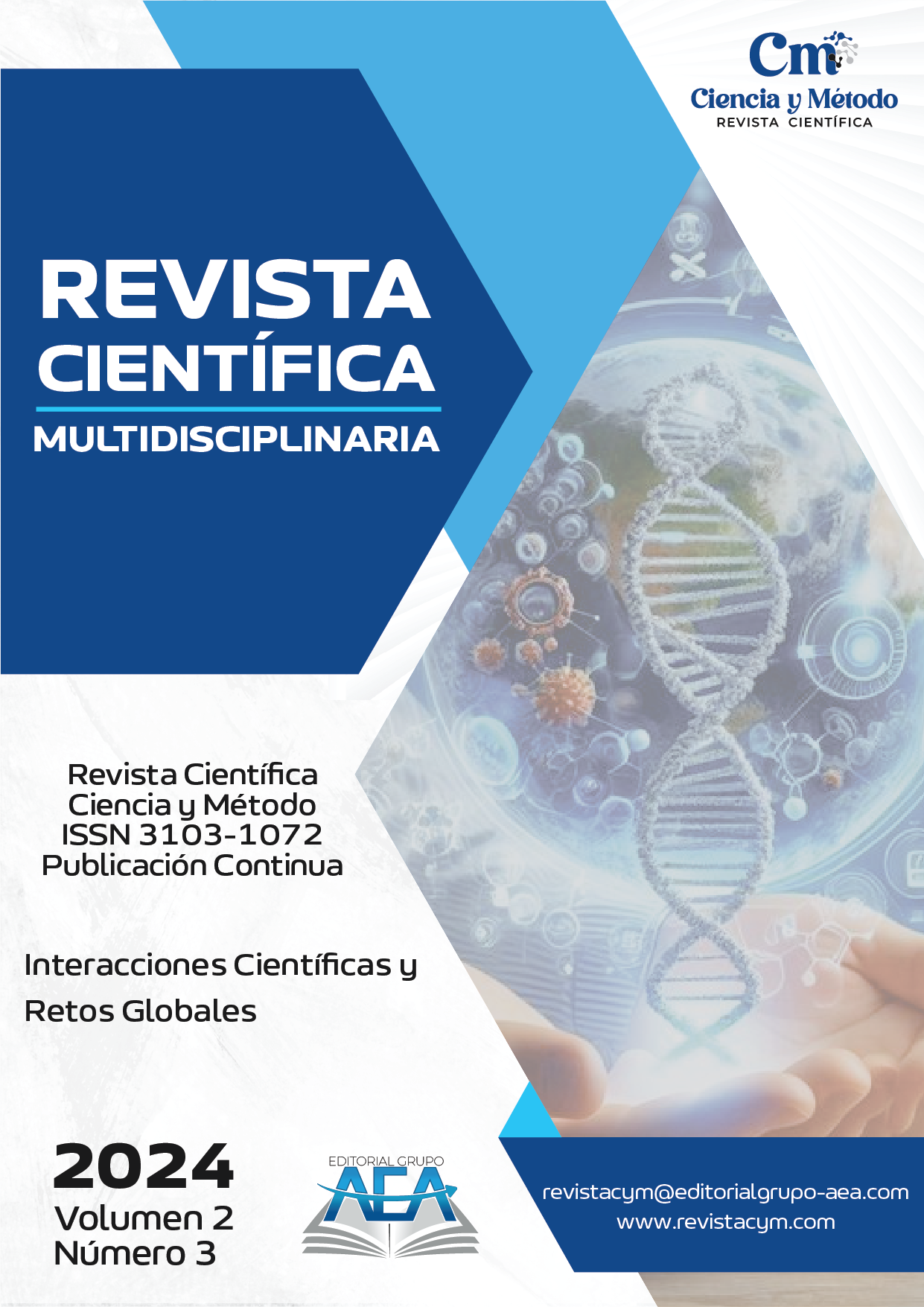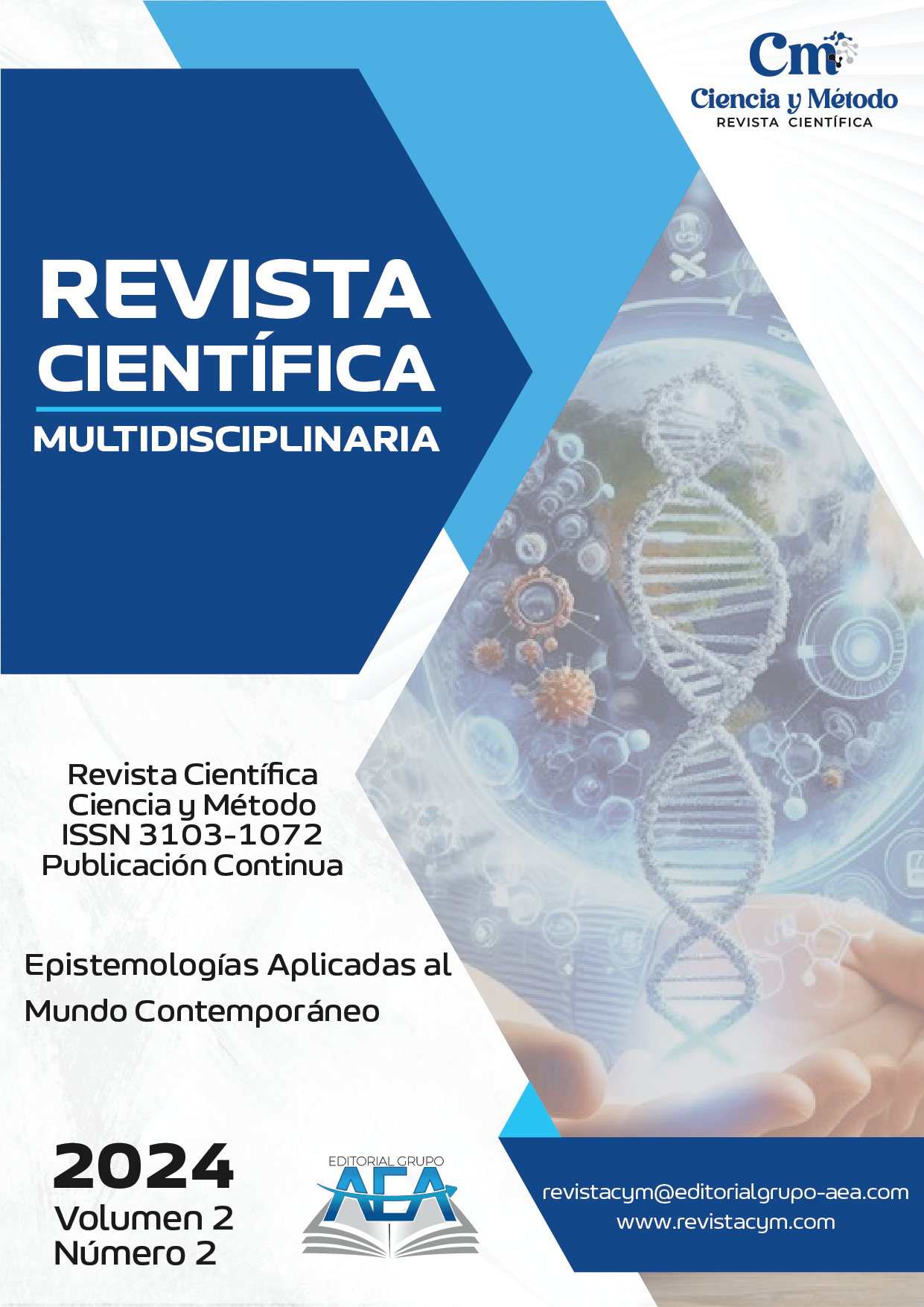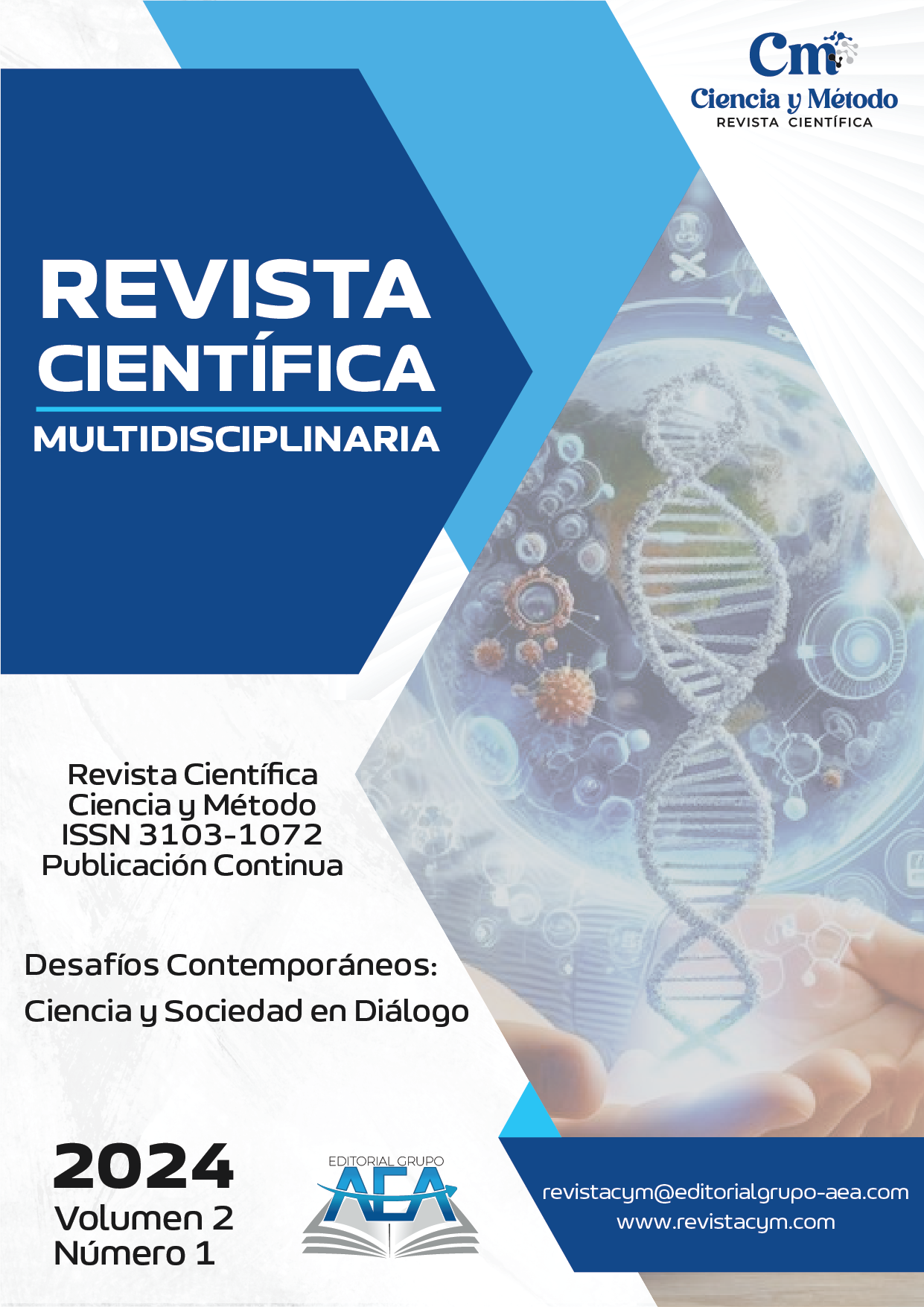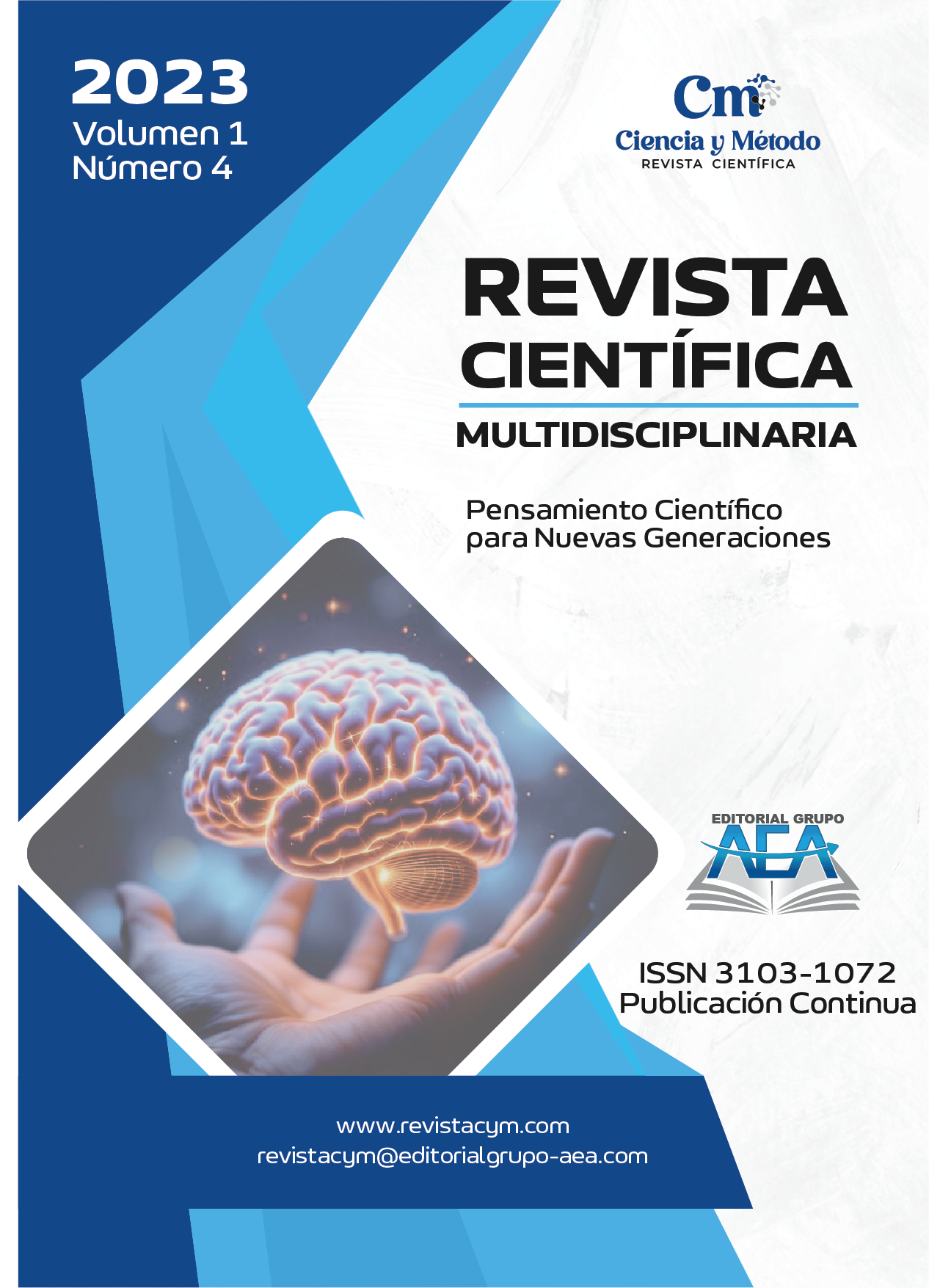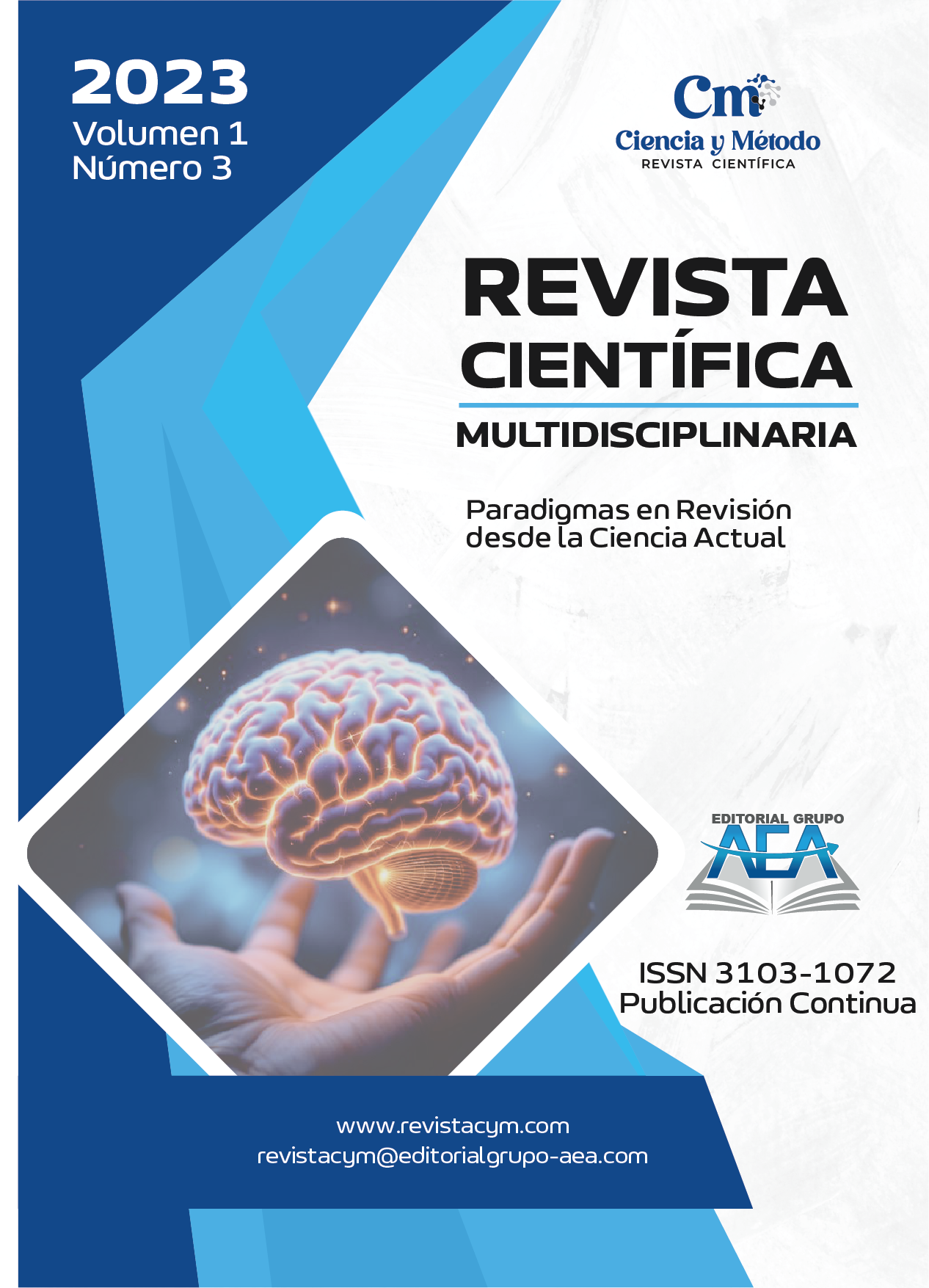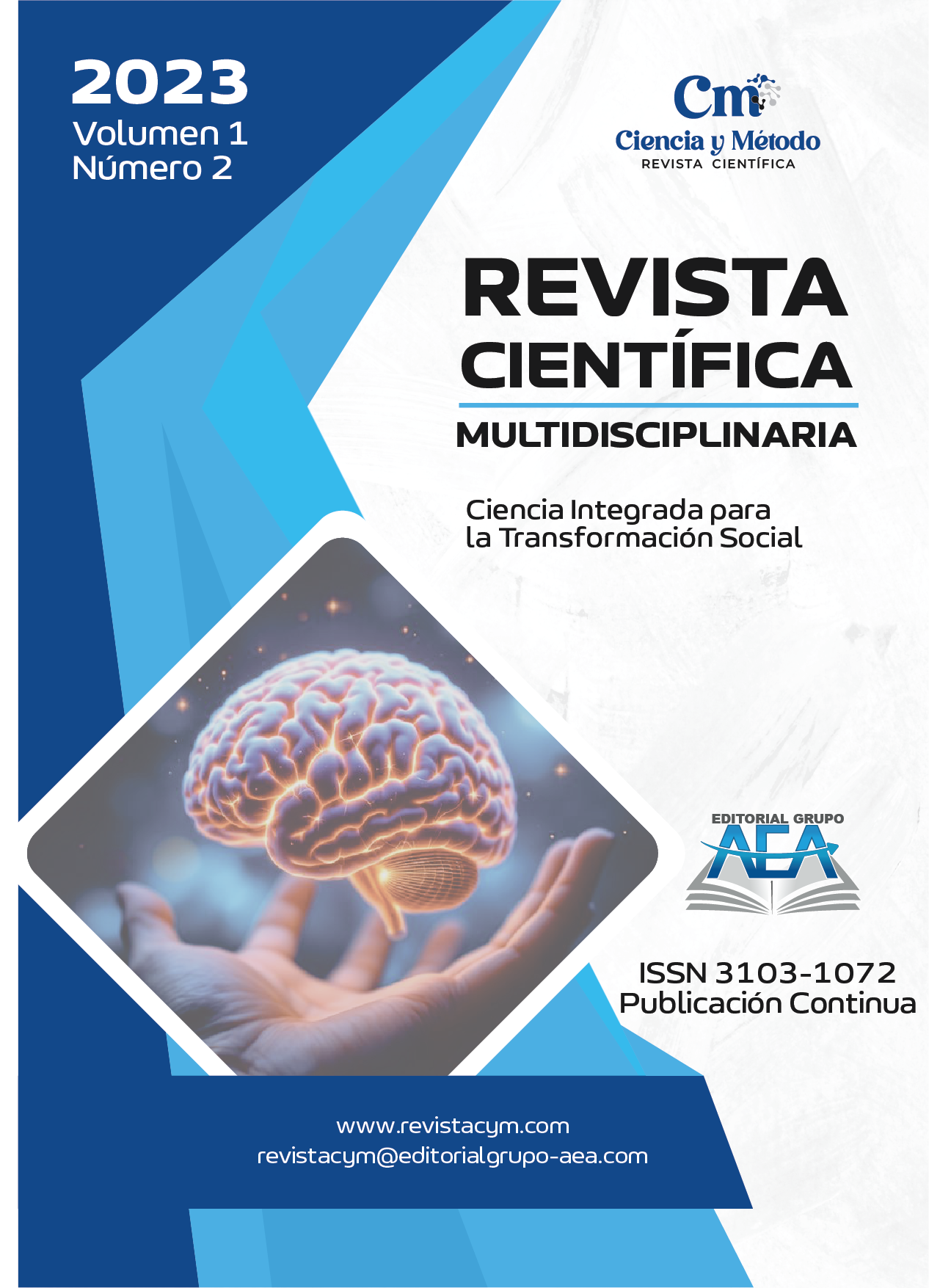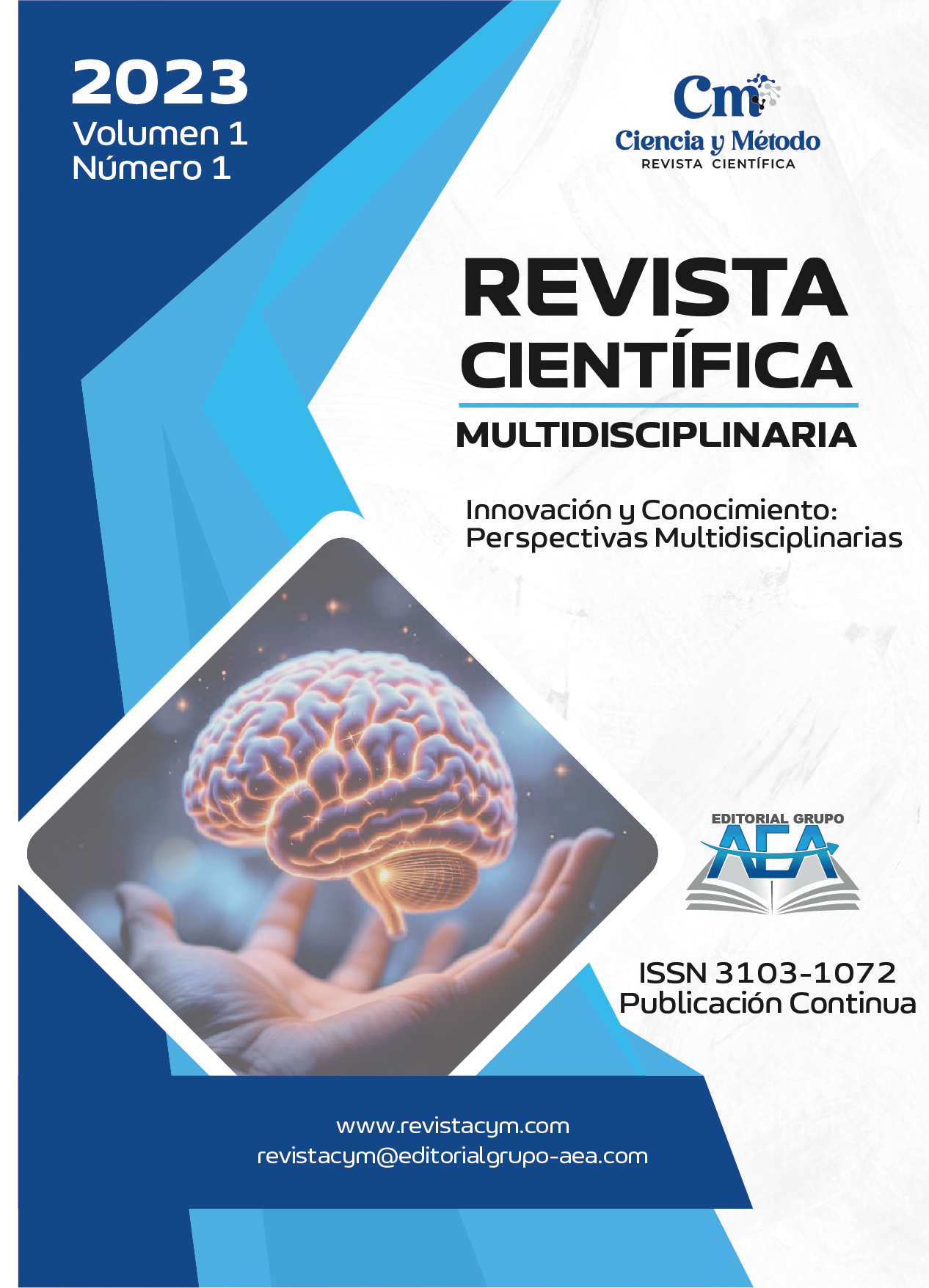New Perspectives on Multidisciplinary Reality
Vol. 4 No. 1 (2026)
It proposes a space for academic reflection where different approaches, disciplines and knowledge converge to interpret the complex phenomena of today's world. This volume brings together research that breaks with the traditional structures of knowledge, betting on integrative analyses and perspectives that cross epistemological boundaries. The articles presented examine social, technological, environmental, educational and health issues from innovative approaches that combine diverse methods, languages and foundations. The proposals that demonstrate how multidisciplinarity enriches the understanding of the environment and favors more contextualized, collaborative and sustainable solutions are especially valued. This issue reaffirms the importance of thinking science as a network of knowledge in constant dialogue, capable of adapting and responding to global challenges with creativity, rigor and commitment.
Academic Dialogues in an Interdisciplinary Key
Vol. 3 No. 4 (2025)
Contributions that promote the encounter between different areas of knowledge, with the aim of building a more comprehensive understanding of contemporary phenomena. This volume highlights the richness of academic interactions that transcend disciplinary boundaries, generating spaces for collaboration, debate and joint creation of knowledge. The articles included address complex issues from intersecting perspectives such as education and technology, health and society, environment and economics demonstrating how interdisciplinarity enhances innovation, social relevance and the applicability of scientific results. This issue is intended as a platform to strengthen the dialogue between fields of knowledge, foster methodological integration and consolidate an academic production that responds to current realities with a critical, ethical and transformative vision.
New Perspectives on Multidisciplinary Reality
Vol. 3 No. 3 (2025)
It proposes a space for academic reflection where different approaches, disciplines and knowledge converge to interpret the complex phenomena of today's world. This volume brings together research that breaks with the traditional structures of knowledge, betting on integrative analyses and perspectives that cross epistemological boundaries. The articles presented examine social, technological, environmental, educational and health issues from innovative approaches that combine diverse methods, languages and foundations. The proposals that demonstrate how multidisciplinarity enriches the understanding of the environment and favors more contextualized, collaborative and sustainable solutions are especially valued. This issue reaffirms the importance of thinking science as a network of knowledge in constant dialogue, capable of adapting and responding to global challenges with creativity, rigor and commitment.
Emerging Knowledge in Current Research
Vol. 3 No. 2 (2025)
It presents a compilation of studies that highlight the emergence of new ways of understanding, analyzing and transforming reality through scientific knowledge. This volume emphasizes the relevance of innovative, hybrid and expanding approaches that emerge in response to dynamic contexts, emerging issues and socio-cultural transformations. The collected articles explore how unconventional knowledges, alternative epistemologies and flexible methodologies contribute to the strengthening of critical thinking, epistemic inclusion and the generation of creative solutions. From technology and education to health, management and social sciences, proposals that enrich the scientific landscape with disruptive and contextually sensitive perspectives are evidenced. This issue invites reflection on the need to open the academic field to new ways of producing and validating knowledge, reaffirming the value of epistemic diversity in contemporary research.
Methodological Perspectives in Times of Change
Vol. 3 No. 1 (2025)
Studies that reflect on the evolution, adaptation and relevance of methodological approaches to the challenges of the current context. In scenarios marked by uncertainty, accelerated digitalization, social transformations and demands for scientific rigor, this volume offers a space for critical analysis and methodological innovation. The articles presented explore both traditional methods and emerging proposals, addressing their applications, limitations and potential in various areas of knowledge. Mixed approaches, participatory designs, digital techniques and adaptive models that respond to the complexity of the contemporary world are highlighted. This issue invites us to rethink methodology not only as a set of techniques, but as a dynamic construction that evolves with the problems, contexts and purposes of scientific research.
Critical Knowledge in the Digital Society
Vol. 2 No. 4 (2024)
It brings together research that examines the role of critical thinking and the production of knowledge in an environment marked by hyperconnectivity, artificial intelligence and information overload. This volume addresses how digital technologies influence the construction of knowledge, teaching-learning processes, citizen participation and decision-making in different fields. The selected articles explore strategies to foster a culture of rigorous analysis, information ethics and digital literacy in academic, social and professional contexts. They also present approaches that problematize the access, use and validation of knowledge in digital media, promoting a science that not only integrates technologies, but also questions their cultural, cognitive and political implications. This issue seeks to consolidate a critical vision of knowledge in the digital era, promoting an academic reflection committed to truth, equity and social responsibility.
Scientific Interactions and Global Challenges
Vol. 2 No. 3 (2024)
A compilation of research aimed at understanding how science, in its collaborative and multidimensional nature, can respond to the great challenges of our time. This volume addresses global problems such as climate change, health crises, migration, artificial intelligence and social equity from an interdisciplinary approach, highlighting the need to generate integrative and situated knowledge. The articles included highlight the importance of synergies between disciplines, institutions and cultural contexts to address complex situations with innovative, sustainable and ethically responsible solutions. Through scientific dialogue between different fields of knowledge, this issue promotes a vision of science as a transforming agent, capable of articulating joint responses to the emerging demands of the 21st century.
Epistemologies Applied to the Contemporary World
Vol. 2 No. 2 (2024)
Research that examines the way in which theoretical frameworks of knowledge are transferred to the understanding and solution of current problems. This volume discusses the applicability of various epistemological currents in the face of complex scenarios such as environmental crisis, socio-political conflicts, educational transformation and technological evolution. The selected articles address the role of epistemology not only as a philosophical reflection, but also as a practical tool to interpret, intervene and transform reality from multiple disciplines. Priority is given to critical, decolonial, systemic and transdisciplinary approaches that enrich contemporary scientific production. This issue seeks to promote a science that thinks its own method, that questions its foundations and that dialogues with concrete realities through flexible, ethically committed and socially relevant theoretical frameworks.
Contemporary Challenges: Science and Society in Dialogue
Vol. 2 No. 1 (2024)
It presents a selection of studies that explore the interaction between scientific knowledge and current social processes. In a world marked by environmental crises, digital transformations, structural inequalities and accelerated cultural changes, this volume proposes a space for critical and propositional analysis from multiple disciplines. The articles included address topics such as public health, sustainability, governance, education, communication and technology, showing how science can respond - and adapt - to the needs of contemporary society. This issue encourages an active dialogue between academia and the community, promoting research that not only explains current phenomena, but also provides viable, inclusive and ethically grounded solutions to the challenges of the present.
Scientific Thinking for New Generations
Vol. 1 No. 4 (2023)
It brings together contributions that promote a renewed vision of scientific work, aimed at the critical, ethical and creative training of future generations of researchers, teachers and professionals. This issue highlights academic proposals focused on science education, digital literacy, pedagogical innovation and the dissemination of knowledge in dynamic and challenging environments. The selected articles show how scientific thinking, when integrated from an early age and adapted to current contexts, can strengthen analytical skills, foster intellectual curiosity and stimulate social commitment. The volume is committed to a formative, inclusive and contextualized science, capable of dialoguing with young people and accompanying them in the construction of a more reflective, equitable and sustainable society.
Paradigms in Review from Current Science
Vol. 1 No. 3 (2023)
It convenes research that questions, updates or reformulates traditional theoretical and conceptual frameworks in various disciplines. This issue opens a space for critical reflection and the reconstruction of knowledge in light of new findings, emerging technologies and changing global contexts. The selected papers examine how scientific paradigms evolve in the face of present challenges, from innovative approaches and contrasting methodologies. Included are studies that problematize established concepts, propose new analytical categories and propose alternative horizons for the development of scientific knowledge. This volume seeks to encourage disruptive thinking, epistemological openness and dialogue between academic currents, promoting a science that not only observes, but also reinvents itself to provide more relevant answers to the complex realities of the 21st century.
Integrated Science for Social Transformation
Vol. 1 No. 2 (2023)
It presents academic contributions that explore how scientific knowledge can be articulated with social, cultural, economic and educational processes to generate significant changes in different contexts. The research included proposes models, practices and interdisciplinary approaches that respond to current problems with a vision of collective impact. Through rigorous methodologies and critical analysis, the authors reflect on the role of science as an active agent of transformation, capable of influencing public policies, community practices and social innovation strategies. This issue reaffirms the journal's commitment to a scientific production that not only describes reality, but also contributes to improving it through dialogue among knowledge, inclusion and ethical responsibility.
Innovation and Knowledge: Multidisciplinary Perspectives
Vol. 1 No. 1 (2023)
It brings together research oriented to the generation of applicable and sustainable knowledge from multiple fields of knowledge. In an environment marked by digital transformation, social challenges and scientific complexity, this issue offers an integrative view that articulates innovation with critical analysis, research practice and theoretical reflection. The articles presented address contemporary issues from education, health, social sciences, technology and management, proposing solutions that transcend disciplinary boundaries. Priority is given to rigorous methodologies and emerging approaches that allow for a broader understanding of the phenomena studied. This volume seeks to foster academic dialogue and promote a research culture committed to improving local and global realities through innovative thinking.

